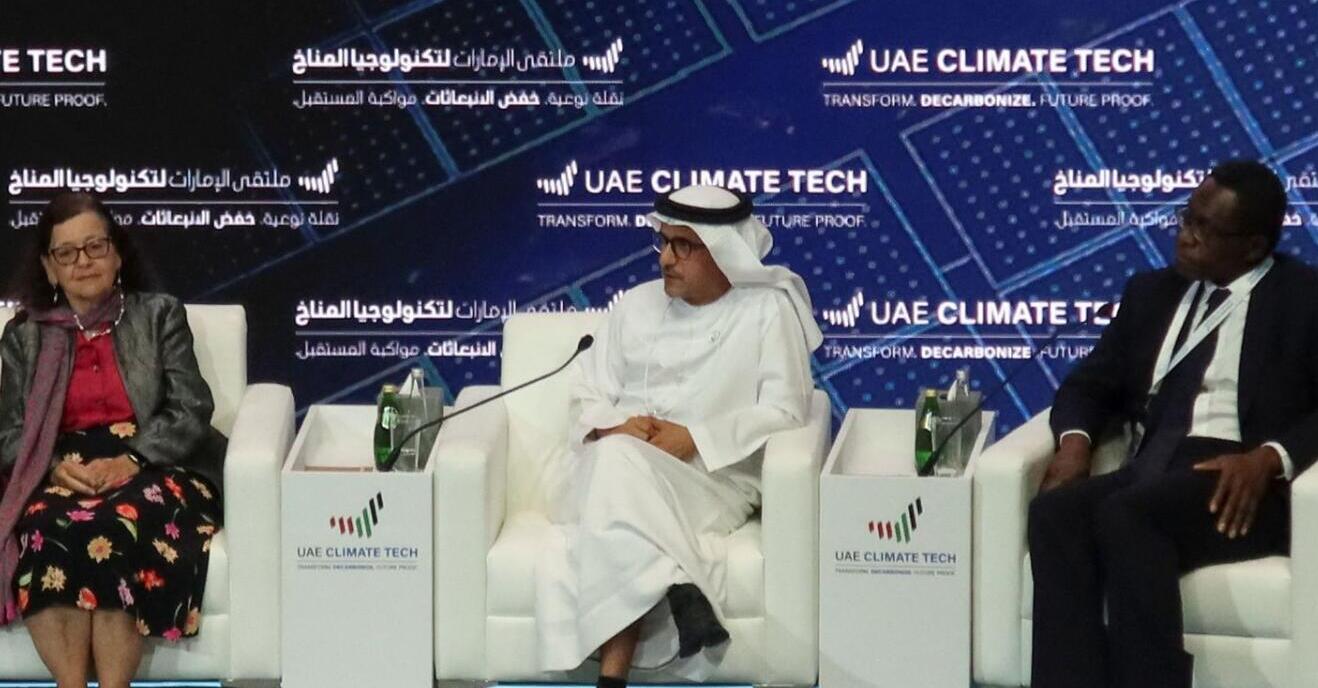Gulf Arab Energy Giants Collaborate with Tech Start-Ups for Carbon Capture Initiatives.
In an effort to tackle emissions while sustaining oil production, leading energy companies in the Gulf region are turning to technology start-ups for innovative solutions. Saudi Aramco and the United Arab Emirates’ Adnoc are among the major players recognizing the need for carbon capture measures. As the UAE prepares to host climate negotiations, these energy giants are embracing the goal of reducing emissions. Acknowledging the significance of carbon capture in achieving net-zero targets by 2050, Adnoc’s executive director of low-carbon solutions, Musabbeh Al Kaabi, stressed the practicality and transparency of this approach compared to relying solely on renewable energy sources.
With the urgency to address climate change and reduce carbon emissions, the energy industry is increasingly focusing on carbon capture technologies as a crucial element in the transition to a sustainable future. The recent climate tech conference held in Abu Dhabi, the capital of the UAE and home to Adnoc, shed light on the significance of carbon capture and storage (CCS) initiatives.
At the conference, start-ups showcased their advancements in CCS, highlighting the process of capturing carbon dioxide emissions from power plants and heavy industries. These technologies aim to intercept and store CO2 before it is released into the atmosphere, effectively mitigating its impact on global warming.
Gulf Arab energy giants, known for their prominent role in oil production, are recognizing the need to diversify their portfolio and address the environmental challenges associated with fossil fuels. While renewable energy sources such as wind and solar have gained attention, industry experts acknowledge that they alone cannot provide a comprehensive solution.
By collaborating with technology start-ups, these energy companies seek to leverage the expertise and innovation of smaller, nimble enterprises. The goal is to develop and deploy cutting-edge carbon capture technologies that can be integrated into existing infrastructure, ensuring a more sustainable and efficient energy sector.
Saudi Aramco, the world’s largest oil exporter, has recently invested in a carbon capture utilization and storage (CCUS) project in the Kingdom. The company aims to capture over 40 million tons of CO2 annually by 2030. This commitment reflects a significant shift in the industry’s approach, as oil giants proactively address their environmental impact.
Similarly, Adnoc, the UAE’s national oil company, has expressed its determination to embrace carbon capture as a crucial element in the energy transition. Recognizing that decarbonization requires comprehensive strategies, Adnoc’s executive director of low-carbon solutions emphasizes the practicality and necessity of carbon capture initiatives in achieving ambitious emissions reduction goals.
The collaboration between Gulf energy giants and start-ups is a testament to the importance of innovation and cross-sector partnerships in addressing global challenges. By bridging the gap between established industry players and emerging technology firms, these collaborations foster an environment of shared knowledge, expertise, and resources.
Tech start-ups, driven by a spirit of entrepreneurship and agility, bring fresh perspectives and breakthrough solutions to the table. Their advancements in carbon capture technologies can play a pivotal role in achieving emission reduction targets and transitioning to a more sustainable energy landscape.
As Gulf Arab energy giants navigate the evolving energy landscape, their collaboration with tech start-ups in the field of carbon capture signals a notable shift towards sustainability and environmental responsibility. By embracing carbon capture technologies, these companies recognize the importance of reducing emissions while ensuring the continuity of oil production. Through innovative solutions and cross-sector partnerships, the Gulf region aims to play a significant role in global efforts to mitigate climate change and transition to a low-carbon future. The integration of carbon capture initiatives into existing infrastructure will help pave the way for a more sustainable and resilient energy sector in the years to come.





